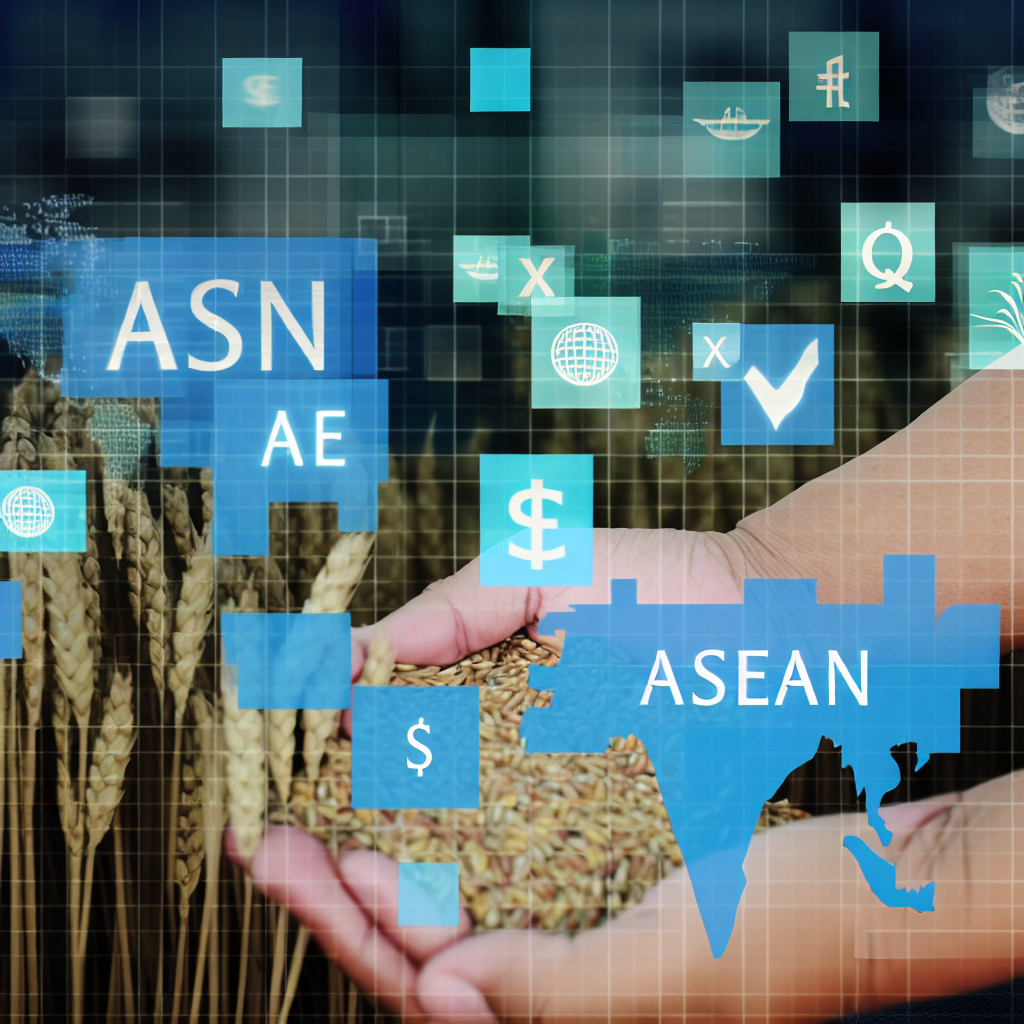Singapore Exchange Launches New ASEAN Agricultural Commodities Index
The Singapore Exchange (SGX) has recently unveiled a groundbreaking financial instrument: the ASEAN Agricultural Commodities Index. This new index aims to provide investors, traders, and policymakers with a comprehensive benchmark that tracks the performance of key agricultural commodities across the ASEAN region. As Southeast Asia continues to play a pivotal role in global agriculture, this index is poised to enhance market transparency, facilitate risk management, and promote sustainable investment in the sector.
Understanding the ASEAN Agricultural Commodities Index
The ASEAN Agricultural Commodities Index is designed to reflect the price movements of a basket of agricultural commodities that are significant to the economies of ASEAN member countries. These commodities include palm oil, rubber, rice, coffee, and cocoa, among others. By aggregating these diverse products into a single index, SGX provides a holistic view of the agricultural market dynamics in Southeast Asia.
Key features of the index include:
- Diverse Commodity Coverage: The index covers a wide range of agricultural products that are vital to ASEAN economies, ensuring broad market representation.
- Market-Driven Weighting: Commodities are weighted based on their market capitalization and trading volumes, reflecting their economic importance.
- Regular Rebalancing: The index is reviewed and rebalanced quarterly to maintain relevance and accuracy.
Significance for Investors and the Agricultural Sector
The launch of the ASEAN Agricultural Commodities Index comes at a time when global agricultural markets are experiencing heightened volatility due to climate change, geopolitical tensions, and supply chain disruptions. For investors, this index offers several advantages:
- Risk Diversification: By investing in an index that spans multiple commodities, investors can mitigate risks associated with price fluctuations in any single product.
- Market Transparency: The index provides a transparent and standardized benchmark, enabling better-informed investment decisions.
- Access to ASEAN Markets: It opens up new opportunities for global investors to gain exposure to the rapidly growing ASEAN agricultural sector.
For agricultural producers and policymakers, the index serves as a valuable tool for price discovery and market analysis. It can help in formulating strategies to stabilize income for farmers and improve supply chain efficiency.
Case Study: Palm Oil’s Role in the Index
Palm oil is one of the most significant commodities in the ASEAN region, particularly in Indonesia and Malaysia, which together account for over 85% of global palm oil production. The inclusion of palm oil in the index is crucial given its economic and environmental impact.
Recent data from the Malaysian Palm Oil Board indicates that palm oil prices have experienced significant volatility, influenced by factors such as weather conditions, export policies, and global demand shifts. By tracking palm oil prices within the index, investors can better understand market trends and hedge against price risks.
Supporting Sustainable Agriculture and Economic Growth
SGX has emphasized that the ASEAN Agricultural Commodities Index will also support sustainable agricultural practices. The exchange plans to collaborate with environmental and social governance (ESG) experts to integrate sustainability metrics into the index framework over time.
This initiative aligns with ASEAN’s broader goals of promoting sustainable development and reducing the environmental footprint of agriculture. By encouraging investment in sustainable commodities, the index can drive positive change in farming practices and supply chain management.
Looking Ahead: The Future of Agricultural Commodities Trading in ASEAN
The introduction of the ASEAN Agricultural Commodities Index marks a significant milestone in the evolution of commodity trading in Southeast Asia. As the region’s agricultural sector continues to expand, the index is expected to:
- Enhance liquidity and price discovery in agricultural markets.
- Attract more institutional investors to the ASEAN commodities space.
- Encourage innovation in financial products linked to agriculture, such as futures and options contracts.
- Support regional economic integration by harmonizing commodity market standards.
Conclusion
The Singapore Exchange’s launch of the ASEAN Agricultural Commodities Index represents a forward-thinking approach to capturing the economic significance of Southeast Asia’s agricultural sector. By providing a transparent, diversified, and market-driven benchmark, the index offers valuable insights and opportunities for investors, producers, and policymakers alike.
As global challenges continue to impact agricultural markets, this index not only facilitates better risk management but also promotes sustainable growth within the ASEAN region. With its comprehensive coverage and strategic focus, the ASEAN Agricultural Commodities Index is set to become a vital tool in shaping the future of agricultural finance and trade in Southeast Asia.





